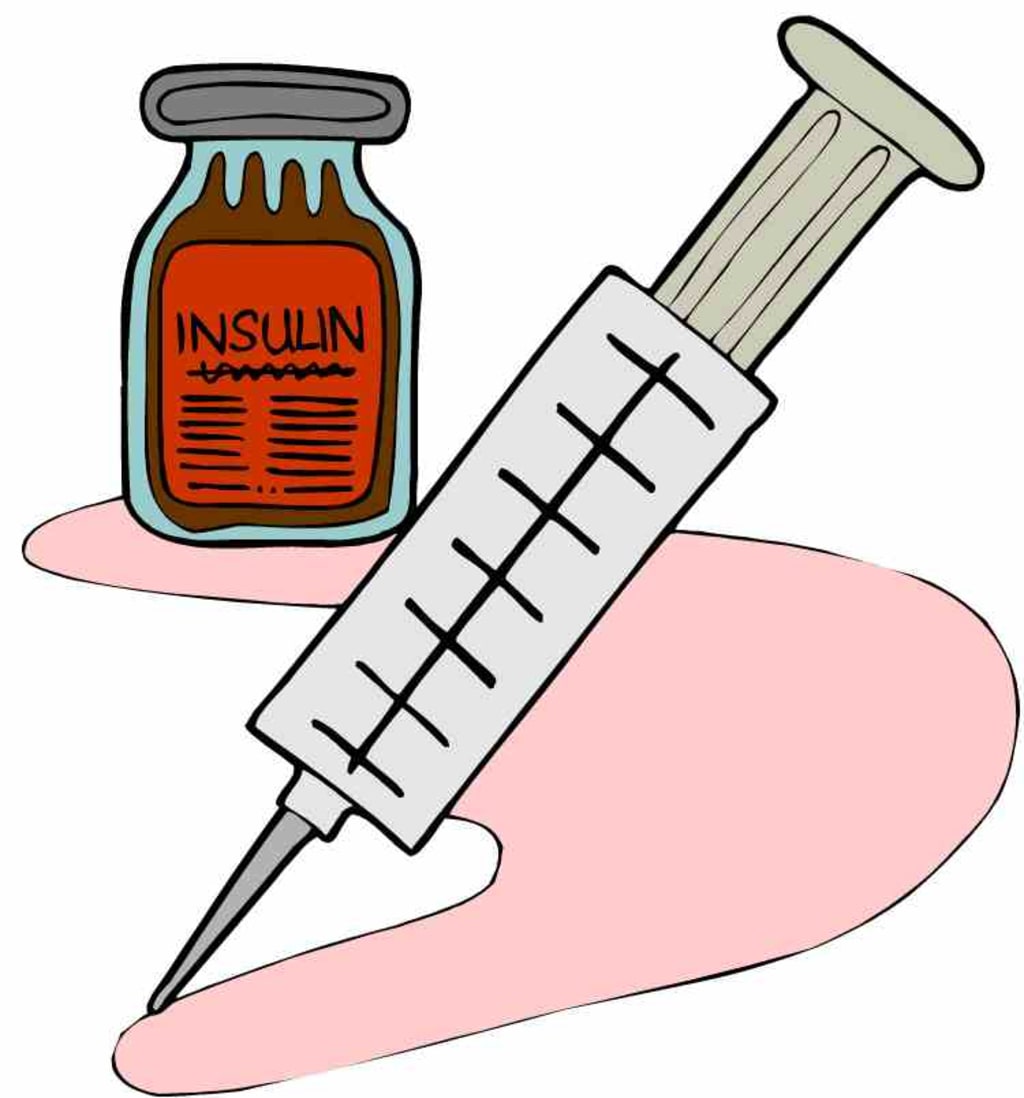
As a parent, we naturally want to protect our children from the world. We want to be there to comfort them and shield them from any harm that comes their way. But, what if that evil presence comes in the form of a life-changing disease or illness?
I was blessed in this life to have four beautiful sons that grew to be honest, hardworking, caring individuals. My youngest, Kevin, is a sweet, kind child who loved his older brothers and adored his mom. He loved animals and could spend all day outside. His imagination is incredible, and he would write stories about make-believe people and places that even his teacher praised him for.
I always admired his care-free attitude and his zest for life. Not only did Kevin love to laugh, but he had a wonderful way of making other people laugh, too. It was great to see him enjoy the little things in life, from climbing trees to walking in the woods.
When Kevin was 8 years old we had taken a trip to Florida for spring break. It was a great time for all of us, and the first time he and his brother, Andrew, had been on a plane. The trip was filled with beach fun, tours of historical sites, theme parks, and LOTS of food! It gave me so much pleasure to see the boys having fun and not having a care in the world.
It would be the last trip Kevin would be able to enjoy without counting and measuring every single ounce of food that entered his little body.
Only a few weeks after we returned home from Florida, my husband was sent off on an extended trip for work. Kevin started acting different—he was waking up several times through the night to go to the bathroom and was constantly complaining about being thirsty. For several days, I was receiving phone calls from the school almost immediately after I dropped Kevin off telling me that he was in the office throwing up. I would go pick him up from the school, but he never had any other symptoms other than nausea – no fever, no sore throat or chest congestion. I began to wonder if he just missed my husband and was acting out.
On one occasion, I went to pick up my son and as I walked into the school office, I noticed that he was squinting.
I asked, “Is the light bothering you?”
He answered, “A little, but I was just trying to see what time it was… it’s blurry.”
He was looking at the clock on the wall.
My concern grew as the evening wore on, and he complained of loud noises. He asked us if we could turn the volume down on the TV and wanted the lights dimmed so he could feel more comfortable. As I began to read up on photophobia and photophobia, the first thing that popped up was meningitis!
I was two seconds away from rushing Kevin to the emergency room when my husband called and said, “Why don’t you test his blood sugar first thing in the morning before he eats anything?”
I hadn’t thought about that so, I agreed.
We had a blood sugar monitor that my husband had brought home from a men’s health conference he had attended a few months prior. It came with about five test strips and a few lancets. I didn’t know much about diabetes, blood sugars, or testing—no one in my family or close to me was diabetic, other than my stepmom who never really talked about it a lot. That morning, I set up the blood sugar monitor according to the instructions. I felt bad as I pricked Kevin’s finger (it looked like it hurt), and waited for the screen to show the results.
“580.”
I wasn’t sure what to think and looked to see what a normal blood sugar should be—about 80 to 120!
I panicked and thought, “I must have done something wrong…that’s impossible.”
I took another blood sample from Kevin and nervously watched the monitor…
“560.”
Ok…I am now officially freaked out! I cancelled my morning meeting at work and waited for the clock to hit 9:00 AM on the dot so I could call the doctor’s office as soon as it opened.
The minute I told them what was going on they said, “Bring him in now.”
Without hesitation, we headed for the doctor’s as I tried to reassure Kevin that everything would be fine.
Kevin had always been a smaller child than his brothers, but as I looked at him sitting on the exam table I couldn’t help but notice how frail and tired he seemed. He nurse had weighed him when we arrived—he had lost four pounds in just less than two weeks. We were patiently waiting for the doctor to come in with blood and urine results.
As soon as the doctor walked in, I could see the concern on his face.
He sat down and stated, “Well, I’m sure you already know what I’m going to tell you.”
I was still in slight denial and said, “I’m assuming he has type two diabetes so, ok… well, what do we do now? He has to go on a special diet or something, right?”
The doctor gave me a sympathetic smile and explained, “No, Kevin is type one, not type two. He’s going to need insulin for the rest of his life.”
I could feel the tears well up in my eyes, but I wanted to stay strong so, I choked them back. “Ok… what do we do next?”
The doctor was quick and prepared. “Kevin needs to be hospitalized immediately, his ketones are large, and his blood sugar levels are excessive. I’ve already called the hospital to have him admitted. Can you go now?”
I was in shock and needed to explain everything to my son. The doctor helped and was very kind, but I could see the fear in Kevin’s eyes. I’m not sure he understood all that was going on, but he never complained and was a real trooper through the whole ordeal.
When we arrived at the hospital, everyone was concerned but professional and made sure that Kevin was comfortable and happy. While the nurses and doctors were busy taking blood, urine, and vitals—I was busy calling family members and making arrangements for my other son, Andrew. I was not going to leave my eight-year-old in the hospital alone so, I had planned on sleeping there. I was informed that he would be at the hospital for at least five days.
The first day was filled with a lot of information for both of us, and a “crash course” in diabetic education. It was a great deal to absorb in such a short period of time—units, ratios, ketones, carbs, injection sites, etc. A team of endocrinologists came in to meet with Kevin, and go over a treatment plan. By this time, Kevin was beginning to feel a bit overwhelmed, and I could tell he was a bit scared and unsure of what to expect. He was starting to think that he was no longer going to be able to do the things he used to do, and I wanted to make sure he understood that that was not the case. I thought he might feel better if he spoke to my stepmom… his grandmother.
I dialed my parent’s number from my son’s hospital bed and explained to my stepmom that Kevin needed some reassurance about leading a normal life.
Kevin picked up the phone, and with a soft voice said, “Grandma, I have what you have.”
I could hear her voice quiver when she heard his little voice, but she talked to him for a while and I could see his face change as he began to feel more at ease.
From that day, Kevin faced this challenge with dignity and strength. He quickly understood the importance of his diet, and of avoiding certain things he used to love. He never complained about getting his fingers pricked, being stabbed in different parts of his body with needles, or having to test his urine, constantly. At the tender age of eight, he was stronger than most adults I knew, and I was so proud of him. I did not want him to feel different… I didn’t want him to feel deprived. I wanted his world to be just as it was before this diagnosis, but of course, it wasn’t.
The new diet seemed to be the easiest part for Kevin, the trick was to count the carbs and keep track of everything in a log book… every single day. Blood sugars were constantly recorded; urine tested approximately four times a day, and trips to the doctor once a month. He had to be awoken at 2:00 AM every night to have his blood sugar taken (for two years), and his insulin levels and ratios were changed quite often due to the “honeymoon phase” of his illness. The whole family got involved in learning bout carbs/ratios, insulin… even his brother Andrew, who was only 14 at the time, learned how to give Kevin his shots.
The years were filled with highs and lows with his blood sugar... he got so used to the finger pricking that he would sleep right through the two AM check, except for the few occasions when his blood sugar was dangerously low, and I had to wake him up to force juice down his throat. Those were scary moments. He had to be careful not to take insulin just before a shower (or it could drop his BS levels), and if he caught a cold or virus we had to follow a “sick day protocol” to monitor him even closer.
One evening around dinner, his insulin was accidentally miscalculated, and he was given too much. Being fairly new to all of this, we weren’t sure what to do so; we rushed him to the emergency room, and arrived just as he was slowly passing out. It was always a hard call with a young child because you give a certain amount of insulin based on the meal/carbs, but what if the child is halfway through the meal and says he’s full?
As Kevin grew, he adapted well to his illness and became well aware of what he could have and couldn’t have. He never let the diabetes become an issue at school, and he made sure his teachers were aware of what to expect. He never made a big deal out of it, or felt sorry for himself, and never pointed out his illness to anyone unless it was necessary. When he became a “tweenie,” puberty threw his blood sugar completely out of whack…the hormones were affecting his body, and his blood sugars became quite high, again. The doctor began to adjust his insulin levels almost every 3 months as he was waking up so nauseous he was missing school, again.
One day, I received an email from the original team of endocrinologists that treated Kevin at the beginning of his diagnosis. Because Kevin had no history of diabetes on either side of the family, was not overweight, and had no other health issues, they wanted him to be a part of a study they were conducting. After talking to Kevin about it, we agreed to take part in the study.
The study began with the revelation that when they first tested my son at the hospital, they concluded that he had only had the illness for approximately three months. They asked if he had had or been exposed to any viruses during that time span. It was an odd question, but in truth, Kevin had been sick with a stomach virus in December, and then another virus that was more upper respiratory in February (both of which were going through his school). He was diagnosed with diabetes on April 4th… only three and a half months later.
This team was trying to find a link between diabetes in children that had no family history of it, and exposure to viruses. Some of these viruses, just like any flu virus, were beginning to mutate and become resilient to antibiotics and were attacking the organs in the body… one of the most vulnerable is the pancreas. It made a great deal of sense, however, their studies were not complete.
During this journey, Kevin was one of the lucky ones to have medical coverage that allowed him to get the medications and supplies that kept him alive. One day in August, I received a letter that informed me that his medical coverage had lapsed—just before I needed to refill his prescriptions! I went straight into panic mode, but didn’t tell Kevin. I had to resubmit his insurance papers; in the meantime, I needed to figure out how to pay for his insulin. It could take weeks before his insurance papers went through, and my son needed his medication today.
I went to the pharmacy to pick up Kevin’s Lantus—the long acting insulin that works for 24 hours. The girl at the window informed me that one vile would cost $450.00! I wanted to cry—that was all the money I had until the next payday, and I still had to buy groceries, pay bills, and put gas in my car. That one vile would only last him 28 days.
A friend directed me to a local health clinic that helps families that are low income or have no health insurance. I was so grateful for the help from this wonderful facility—they supplied me with Lantus and Novolog at $6.00 a vile—a far cry from big pharmaceutical charging almost 800 times that amount! It was an eye opening experience, and heart wrenching at the same time. There are no words to describe how helpless I felt at the thought of almost not being able to keep my son alive.
As time went on, Kevin became more and more independent while still maintaining that great attitude and gorgeous smile. He no longer needs me to give him shots, he counts his own carbs, makes his own doctor’s appointments, and even tries new low carb/no sugar products to add to his diet. He’s made new friends, works part-time, and goes to college, but likes to keep his illness low key so that people don’t feel that he’s fragile.
At this point in his life, he has a lovely girlfriend and is planning his future and career. The one thing that is always in the back of his mind is his diabetes. It has become such a part of his life that no matter where he goes or what he does, he will always have to think about that before anything else.
While some people think about working to save for a car or to save for a vacation, Kevin thinks about where he will work and what kind of career will provide him with the proper health insurance he needs. While other dream of winning the lottery or landing their dream job overseas, Kevin dreams of the possibility of an organ transplant which could change his life.
He’s almost 20… he doesn’t feel sorry for himself… he just has different priorities than the average 20 year old. Kevin has lived with this illness for almost 12 years, but knows that he can accomplish anything that anyone else can. His true journey in life is just beginning and being diabetic will not slow him down.
He is strong, he is fierce, he is determined…he WILL do great things.
Peace…






Comments
There are no comments for this story
Be the first to respond and start the conversation.